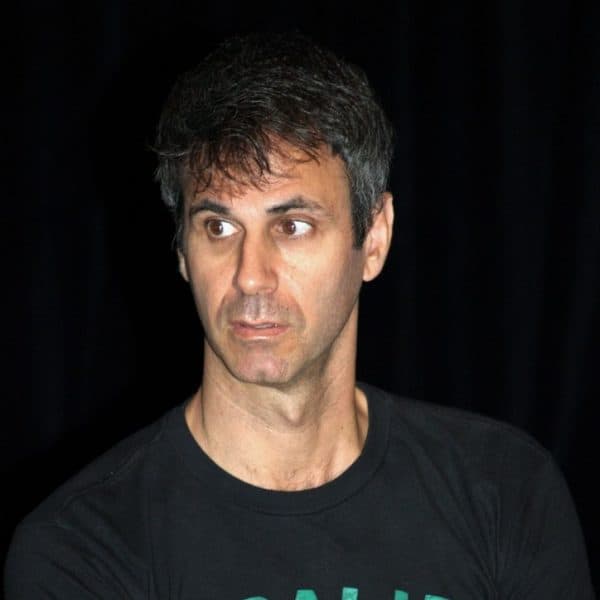Advertisement
Commentary
We're all the 'Bad Art Friend'

If you are one of those people who writes, or spends a lot of time online — or, heaven forbid, like me, does both — you already have had your week swallowed by the viral New York Times Magazine article “Who Is the Bad Art Friend?” which chronicles the story of a bitter dispute between two Boston-area writers, Dawn Dorland and Sonya Larson.
Sonya is a casual friend and a long-time colleague from Grub Street, the creative writing center in Boston where I’ve taught for two decades. Dawn was a student of mine, also at Grub. I like and admire both women very much.
While I understand why the piece about them has become such a big deal — it deftly explores themes of ambition, appropriation, resentment, in-group vs out-group, and so on — I cannot imagine how painful it must be for each of them to become the subject of so much speculation and judgment and vitriol.
My central reaction to “The Bad Art Friend,” then, isn’t an opinion but an emotion: sadness. It’s sad that these two women got into such an intractable dispute and that this dispute has become a public scandal, in addition to a private source of anguish.
Those of us who have been earnestly rubbernecking for the past few days would do well to think about why this piece has us so stirred up.
It’s sad that these two women got into such an intractable dispute and that this dispute has become a public scandal, in addition to a private source of anguish.
For my part, I feel implicated. I have behaved in the same ways as Dawn and Sonya, and other writers quoted in the piece. In addition to being friendly, loyal, hopeful and ambitious, I have been (and am) insecure, insincere, narcissistic, needy and vindictive. You wouldn’t have to look very hard at my text messages or emails to find evidence of these qualities. You could also just ask my friends and family.
Furthermore, I hate that Dawn and Sonya are being treated as characters in some online soap opera. They are human beings, writers living in an era dominated by visual storytelling, an era in which it often feels impossible (especially for writers early in their careers) to believe their stories will ever get published and read.
I don’t think anyone’s in a position to judge Dawn Dorland unless they imagine a scenario in which a more celebrated writer (who they admire and want to befriend, from the same writing community they ardently wish to join) writes a story inspired by their act of altruism, which instead spotlights their desire for acclaim.
I don’t think anyone is in a position to judge Sonya Larson unless they have been the subject of a sustained literary and legal campaign against them for the crime of writing a short story that is a work of deep compassion and piercing insight.
The precision of Sonya’s insight into Dawn — and the way she chose to amplify Dawn’s narcissism for fictional purposes — was the real dagger. Her refusal to acknowledge this dagger stabbed it even deeper. A different person might not have been so wounded, and thus so retaliatory. But Dawn (as Sonya well knew) was eager to be recognized for her generosity, not ridiculed. She was openly insecure.
And so am I. And so are you.
Did Dawn go overboard against Sonya? Yes. Do we all go overboard when we feel humiliated? Yes. Does Sonya have a right to write the fictional stories she feels called to write? Yes. Was Dorland understandably upset to discover herself in Sonya’s story? Yes. Did she feel even more wounded at Sonya’s refusal to acknowledge her pain? Yes.
I can feel -- in the froth around this piece -- the flattening of Dawn and Sonya’s complex inner lives into a canvas onto which the reader can smear our own unexamined neurosis.
There is no binary here. As I wrote some years back: "The point isn’t to take sides. There are no sides. There’s just the one side. And we’re all on it.”
The hubbub around this story feels creepily familiar. The patriarchy loves a story in which two ambitious women are in conflict. It reinforces ancient bigotries. Hell hath no fury like a woman scorned. Our cultural misogyny is so deeply ingrained that we think nothing of the disparity between how we regard male and female aggression. We laud the former as toughness and courage while we pathologize the latter as hysteria, or reduce it to “cattiness."
I can feel — in the froth around this piece — the flattening of Dawn and Sonya’s complex inner lives into a canvas onto which the reader can smear our own unexamined neurosis. Or worse, a “girl fight” in which we’re expected to take sides, like those disgustingly engineered "Housewives" brawls. How about if we stop doing that?
What Dawn and Sonya deserve right now isn’t our scorn, but our support and self-reflection.
As writers, we all share the same goal: to convince those who don’t read books that literary art isn’t some esoteric tradition, but a direct path to meaning, a way of coping with (and being less alone in) our pain and bewilderment. It’s hard to make this case if all we do is squabble and gossip.
Author’s note: I wrote this piece in the hopes that people would be more reflective and less judgmental about this painful dispute. That includes me. I fell short of my own standard in failing to note Dawn's allegations of plagarism, for instance, but mostly in the passage where I sought to sympathize with both women. I should have written something more like...
I don’t think anyone’s in a position to judge Dawn Dorland unless they imagine a scenario in which a more celebrated writer (who they admire and want to befriend, from the same writing community they ardently wish to join) writes a story inspired by their act of altruism, which instead spotlights their desire for acclaim, and even uses some of their words.
I don’t think anyone is in a position to judge Sonya Larson unless they have been the subject of a sustained campaign against them for writing what they intended as a work of fiction.
The way Sonya chose to amplify what she saw as Dawn’s pursuit of recognition, for fictional purposes, was the real dagger…
The lesson in all this for me is to cop to my missteps rather than being defensive.
-- S.A., October 13, 2021
This article was originally published on October 11, 2021.
